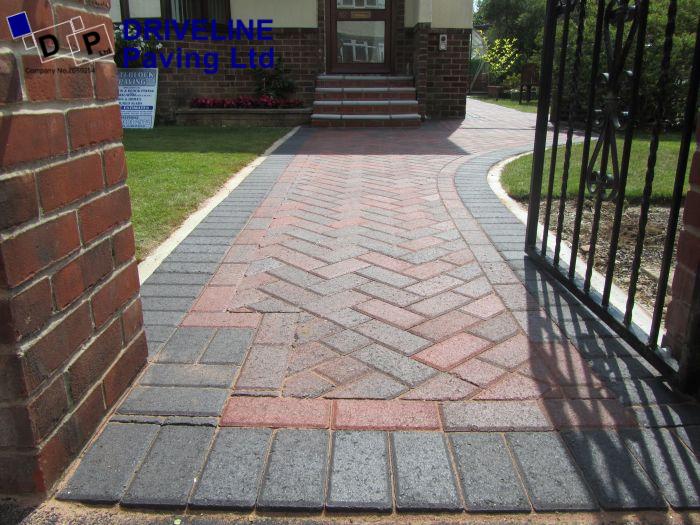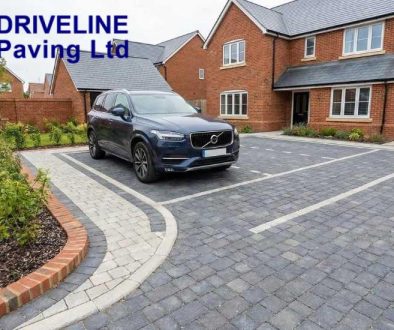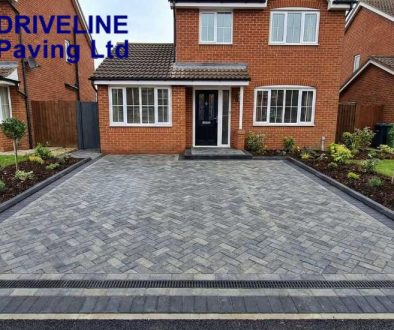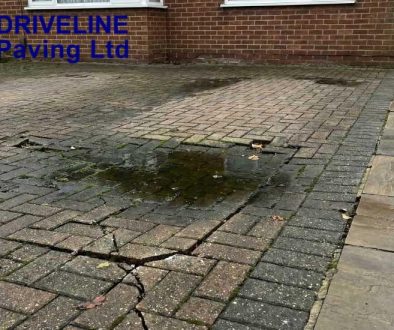Can Driveway Design Really Lower Your Energy Bills?
Rising energy costs have become a pressing concern for homeowners across the UK. From heating in the winter to cooling in the summer, energy use is influenced by many factors around the home. Whilst insulation, windows, and heating systems are often the first areas people consider, outdoor spaces also play a role. Driveway design, in particular, can influence temperature regulation, drainage, and even lighting use. With the right materials and layout, your driveway could contribute to a more energy-efficient home.
How Driveways Affect Home Temperature
Driveways may seem like simple parking areas, but they interact with your property’s energy performance in subtle ways. The surface colour, texture, and material determine how heat is absorbed, stored, or reflected.
- Heat absorption – Dark surfaces, such as traditional tarmac, absorb more heat during the day and radiate it at night. In some cases, this can raise surrounding temperatures, making homes warmer in summer.
- Reflectivity – Light-coloured materials, such as pale resin or block paving, reflect more sunlight, helping keep outdoor areas cooler and reducing heat transfer into the home.
- Insulation effect – Certain materials act as barriers, reducing the movement of heat between the ground and the surface above. This has an indirect impact on how much energy your home needs for comfort.
These effects may seem minor individually, but combined with thoughtful design, they can influence how hard your heating or cooling systems need to work.
Material Choices That Improve Energy Efficiency
Not all driveway surfaces perform equally when it comes to energy use. Choosing the right material is one of the most important steps.
Resin-bound driveways
Resin is naturally permeable, allowing water to drain through and reducing the risk of heat-absorbing puddles. Lighter-coloured finishes reflect sunlight, lowering surface heat in summer. Resin’s smooth finish also makes it easier to combine with energy-efficient features like LED lighting.
Block paving
Block paving offers excellent design flexibility. Lighter shades can reduce heat absorption, whilst permeable blocks improve drainage and prevent excess water build-up, which helps moderate temperature swings. Because blocks can be replaced individually, it also reduces the long-term energy and resource costs associated with repairs.
Concrete
Concrete is durable and low-maintenance, but its performance varies. Pale concrete reflects more sunlight, keeping temperatures stable. Decorative finishes can be chosen to combine style with reflective qualities.
Each material has energy-saving potential when installed and maintained correctly.

Incorporating Green Features
Driveway design goes beyond surface materials. Thoughtful additions can actively reduce your energy bills.
- Solar-powered lighting – Replacing mains-powered bulbs with solar alternatives reduces electricity consumption. Driveways are ideal locations for solar posts or embedded lights.
- Planted borders – Adding greenery around your driveway creates natural shade and wind barriers. Shrubs and hedges help shield your property from cold winds in winter and provide cooling effects in summer.
- Permeable surfaces – Reducing water run-off prevents flooding, minimises standing water, and helps regulate surface temperature. This keeps outdoor spaces usable with less reliance on pumps or additional drainage.
- Smart lighting controls – Motion sensors and timers prevent wasted energy, ensuring lights are only on when needed.
These features combine practical benefits with direct energy savings.
Practical Examples of Cost Savings
Although a driveway won’t replace insulation or efficient boilers, the savings it creates are still meaningful.
- A resin driveway finished in a pale shade can reduce localised heat gain, helping homes remain cooler during summer heatwaves. This lowers reliance on fans or air conditioning, which are becoming more common in UK homes.
- Solar-powered lighting along the driveway can reduce annual electricity costs for exterior lights.
- Permeable block paving prevents puddles and flooding, reducing the need for costly repairs to damp or water-damaged areas of the property.
Over a decade, these small savings accumulate, making driveway design part of a wider energy-efficient strategy.
Environmental Benefits Beyond the Bills
Lowering household energy use also reduces environmental impact. Driveways designed with sustainability in mind help address broader issues such as climate change and water management.
- Reduced carbon footprint – Less energy use means fewer emissions.
- Better water conservation – Permeable surfaces support Sustainable Drainage Systems (SuDS), preventing excessive run-off and easing pressure on local drainage.
- Longevity of materials – Durable surfaces that last longer reduce the need for replacement, cutting down on waste and manufacturing energy.
An eco-conscious driveway benefits not only your wallet but also your community and the environment.
Why Professional Design Matters
The potential energy savings of a driveway depend heavily on how it is installed. Even the best materials can fail to deliver if laid incorrectly. Professional design ensures:
- Correct gradients for water drainage, preventing pooling and damp-related heat loss.
- Proper base layers that insulate and stabilise the driveway.
- Accurate material selection to balance cost, style, and energy efficiency.
- Integration of features such as solar lighting, edging, and greenery.
Without expert guidance, homeowners risk surfaces that crack, drain poorly, or increase heat absorption. Investing in professional installation ensures your driveway contributes positively to your home’s energy performance.
If you’re based in Woodford and want a driveway design that supports energy efficiency as well as kerb appeal, our Woodford driveway services page highlights durable, modern options that work with both your home and the environment. Explore material choices, layouts, and eco-friendly features here: https://drivelinepavingltd.co.uk/woodford-paving/driveways/
Driveway Design That Pays You Back
Driveways are more than practical surfaces; they are part of a property’s energy ecosystem. The right design can regulate heat, manage water, and even reduce electricity use through solar lighting and smart layouts. While savings may not be dramatic on their own, they add up over time and combine with other energy-efficient improvements for real impact.
Thinking about making your home more energy-efficient? Contact Driveline Paving Ltd today to explore driveway designs that cut costs and boost kerb appeal. Your driveway could be working harder for you—and your energy bills will thank you.



